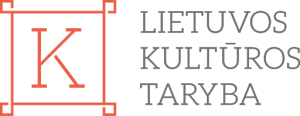#9 DISSIDENCE THROUGH ARCHITECTURE
Conditions/narratives of dissidence through architecture in Lithuania
Why the talk is inspiring?
The Conversation is chaired by
MARIJA DRĖMAITĖ
This conversation will argue about acts of dissidence through architecture in Lithuania. Two architects and architecture historians will share their diverse experience and forms of practice as they were navigating through the extreme political and social changes that have effected architecture and urban planning, first after the collapse of communism and Lithuania’s independence from the Soviet Union, and shortly after, under the new values and economic interests of the neo-liberal market.
Prof. Jonas Minkevicius will present largely unknown and marginal architectural practices in Lithuania that produced daring and creative acts that could be described as important stepping stones for the political change in late 1980s. These practices also marked the dissolution of state run architecture institutions and reforms of the architectural profession.
Algirdas Kauspedas, after quitting his job at the state run Institute of Architecture formed the rock band ‘Antis’ (antis – duck stands for fabricated media sensation). Despite the success of the singing revolution at the times he came back to his profession aspiring to give architectural form for a newly emerging property market.
Audrys Karalius is an architect who in the early 1990s transformed his architectural practice and began publishing activities calling for new critical practices of architecture in Lithuania. His main interest is to place architecture in the centre of civic processes. Currently his active critical voice calls to rethink the ‘house’ as the vehicle for change.
2013
Speaker
Prof. Jonas Minkevičius, Algirdas Kaušpėdas, Audrys Karalius
How the speaker is exceptional?
Architecture historian (Kaunas)
Minkevičius has received numerous State prizes for his activities in Arts and Culture, including for his book “Lithuanian Folk Architecture”.
He was part of the underground catholic movement and friend of partisans during Soviet times; author and co-author of many books, also artist, who organized solo shows; a writer; defamed for the dissident activities during Soviet occupation.
RECOMMENDS TO READ
Dienoraštis
Saint sister M. Faustina Kowalska
Why the book is worth reading?
Astonishing and world famous book, where once Vilnius nun (died 1938), now saint sister Faustina unveils her direct conversations with Jesus. Based on his will she founded Mercy of God cult, painting of His portrait based on her vision (painting now is in Vilnius Mercy of God church). The book basically enriches understanding of meaning and purpose of our existence.
RECOMMENDS TO READ
Danielius Dalba & kitos istorijos
Kristina Sabaliauskaitė
Why the book is worth reading?
The book introduces a different, yet undiscovered Kristina Sabaliauskaitė. Contemporary life realities, quotidian style dialogues, modern slang is mixed with precise episode of recent past.
RECOMMENDS TO READ
Dzenas ir lanko menas
Eugen Herrigel
Why the book is worth reading?
German philosopher relying on his personal experience laconically describes the art’s purpose, meaning and mission, without euro-centrical position. Sometime Gintaras Beresnevicius advised to study zen together with ancient Lithuanian panhteist universe in order to understand the recent better. I follow the Master and recommend it to others…


